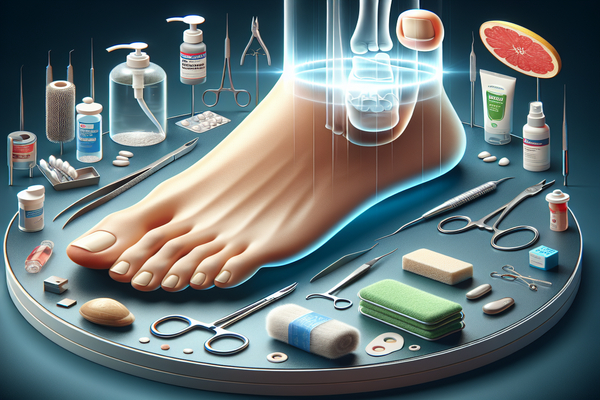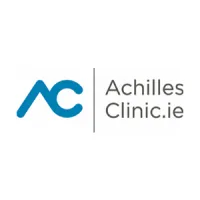
We have all been there, neglected a niggle in our foot and told ourselves that it would probably go away. Weeks have passed, even months, and it’s only getting worse. Then finally, when we are hobbling around barely able to walk, we decide to seek help…
Well, at Achilles Foot Clinic, we are here to help you.

How to Stop Ingrown Toenails from Coming Back
Introduction
Ingrown toenails can be a painful and recurring foot condition affecting many individuals. At Achilles Podiatry Clinic in Ballincollig, Cork, we understand how frustrating this issue can be. With proper care and preventative measures, you can reduce the likelihood of ingrown toenails returning. In this article, we will explore the causes, treatments, and preventative strategies you can implement to keep your feet healthy.
What Causes Ingrown Toenails?
Ingrown toenails, or onychocryptosis, occur when the edge of a toenail grows into the surrounding skin, leading to pain, inflammation, and sometimes infection. Several factors contribute to this condition, including:
Improper Nail Trimming: Cutting nails too short or rounding the edges can encourage them to dig into the skin.
Footwear Choices: Tight-fitting or ill-fitted shoes can exert pressure on the toes, increasing the risk of ingrowth.
Genetics: Some individuals may inherit a predisposition to ingrown toenails due to the shape of their toenails.
Injury: Trauma to the nail bed can result in an ingrown toenail.
Health Conditions: Conditions like diabetes or fungal infections can impact nail growth and structure.
How Can I Treat Ingrown Toenails?
If you do develop an ingrown toenail, treatment options vary based on severity:
At-Home Care: Soaking the affected foot in warm, soapy water can reduce pain and inflammation. Applying antibiotic ointment and keeping the area clean is also essential.
Medical Intervention: If the condition persists or becomes infected, it is crucial to seek professional help. Podiatrists at Achilles Podiatry Clinic can perform a minor procedure to alleviate discomfort, which may include lifting the nail or, in severe cases, partial nail removal.
Prescriptive Treatments: In cases of recurrent ingrown toenails, podiatrists may recommend a permanent solution by removing a portion of the nail matrix to prevent future growth into the skin.
How Can I Prevent Ingrown Toenails from Coming Back?
Preventing ingrown toenails requires attention to nail care and footwear choices. Here are several tips to help you:
Trim Your Nails Properly: Cut your toenails straight across and avoid rounding the edges. This practice helps prevent the nails from growing into the skin.
Wear Proper Footwear: Ensure your shoes fit well and provide adequate space for your toes. Avoid shoes that are too tight or pointed.
Practice Good Foot Hygiene: Regularly wash and dry your feet, and keep your toenails trimmed to a proper length.
Avoid Injury: Be cautious to protect your toes from trauma, especially during activities or sports.
Seek Professional Care: Regular check-ups with a podiatrist can help you proactively address any nail issues before they escalate into ingrown toenails.
When Should I See a Podiatrist?
If you experience symptoms such as severe pain, redness, swelling, or pus, it is essential to consult a podiatrist immediately. Early intervention can prevent complications, including infections that could lead to more significant health problems.
FAQ
1. Can ingrown toenails be hereditary?
Yes, genetics can play a role in the shape of your toenails and predispose you to ingrown toenails.
2. How long does an ingrown toenail take to heal?
With proper care, mild cases of ingrown toenails can heal within a week; however, more severe cases may require medical intervention and could take longer to heal.
3. Is it safe to treat an ingrown toenail at home?
While mild ingrown toenails can often be treated at home, if there is severe pain or signs of infection, it is best to consult a podiatrist.
4. What should I do if my ingrown toenail gets infected?
Seek medical care immediately if you suspect an infection. A podiatrist can provide appropriate treatment to prevent complications.
5. Are there any special shoes recommended for preventing ingrown toenails?
Shoes that provide ample toe space and support, such as those designed for proper foot health, are beneficial in preventing ingrown toenails.
Conclusion
Dealing with ingrown toenails can be difficult, but you can significantly reduce their recurrence with the right care and lifestyle changes. If you're struggling with ingrown toenails or have any concerns regarding your foot health, visit us at Achilles Podiatry Clinic in Ballincollig, Cork. Our experienced team is here to help you manage your foot care effectively. Book your appointment today!
Ask Lorcan And His Team
Fill in the form to request a Call From Our Team
Fill in the form to request a Call From Our Team
One of our team will call you for FREE and answer any questions or concerns you may have about Bunions.
One of our team will call you for FREE and answer any questions or concerns you may have about your uncomfortable Bunions.








